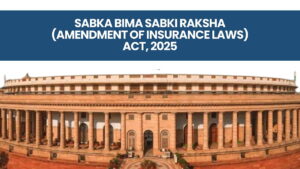Section 127 of the Income Tax Act empowers income tax authorities to transfer assessment cases from one Assessing Officer (AO) to another. This provision serves a larger public purpose and is considered a machinery provision, designed to make the tax framework workable and facilitate effective and coordinated investigation and assessment.[1] Critically, an AO cannot proceed with an assessment in the absence of a specific Section 127 transfer order.
Nature of Transfer Orders and the Requirement for Reasons
While a transfer order under Section 127 is fundamentally an administrative order, it becomes more than that when it prejudicially affects an assessee’s interests. The Hon’ble Supreme Court has emphasized that recording reasons under Section 127(1) is a mandatory direction, and these reasons must be communicated to the assessee. This communication enables the assessee to challenge the order in court—for instance, on grounds of being mala fide, arbitrary, or based on irrelevant considerations. Non-communication of reasons, even if they exist in the file, is not excused, and such an order can be quashed.
Exceptions and Valid Grounds for Transfer
An important exception exists for transfers within the same city or locality between AOs; in these purely administrative transfers, neither recording of reasons nor providing an opportunity of hearing is necessary, as no prejudice is deemed involved.
Coordinated Investigation
For other transfers, coordinated investigation is a settled and sufficient reason. However, the Commissioner must briefly state why such coordination is necessary, not just a bare statement. These valid reasons include:
- Substantial financial transactions with group entities assessed elsewhere.
- Seizure of the assessee’s money from a property in another city during a search.
- Assessee’s participation in proceedings before the transferred jurisdiction without protest.
Invalid Grounds and Judicial Scrutiny (Favouring assessee)
Courts will intervene if an order is arbitrary or based on irrelevant considerations. Transfers based on mere speculation or a lack of cogent material/reasons will not be upheld.[2] An order can also be set aside if it is non-speaking, failing to address the assessee’s submissions, potential inconvenience, or specific reasons.
[1] K.P. Mohammed Salim v. Commissioner of Income-tax, Cochin [2008] 169 Taxman 465 (SC) at Para 10.
[2] Anuben Lalabhai Bharwad v. PCIT, (2016) 72 taxmann.com 178 (Guj.) at Para 11 and Kamal Varandmal Galani v. PCIT, (2023) 152 taxmann.com 340 (Bom.) at Para 11.






